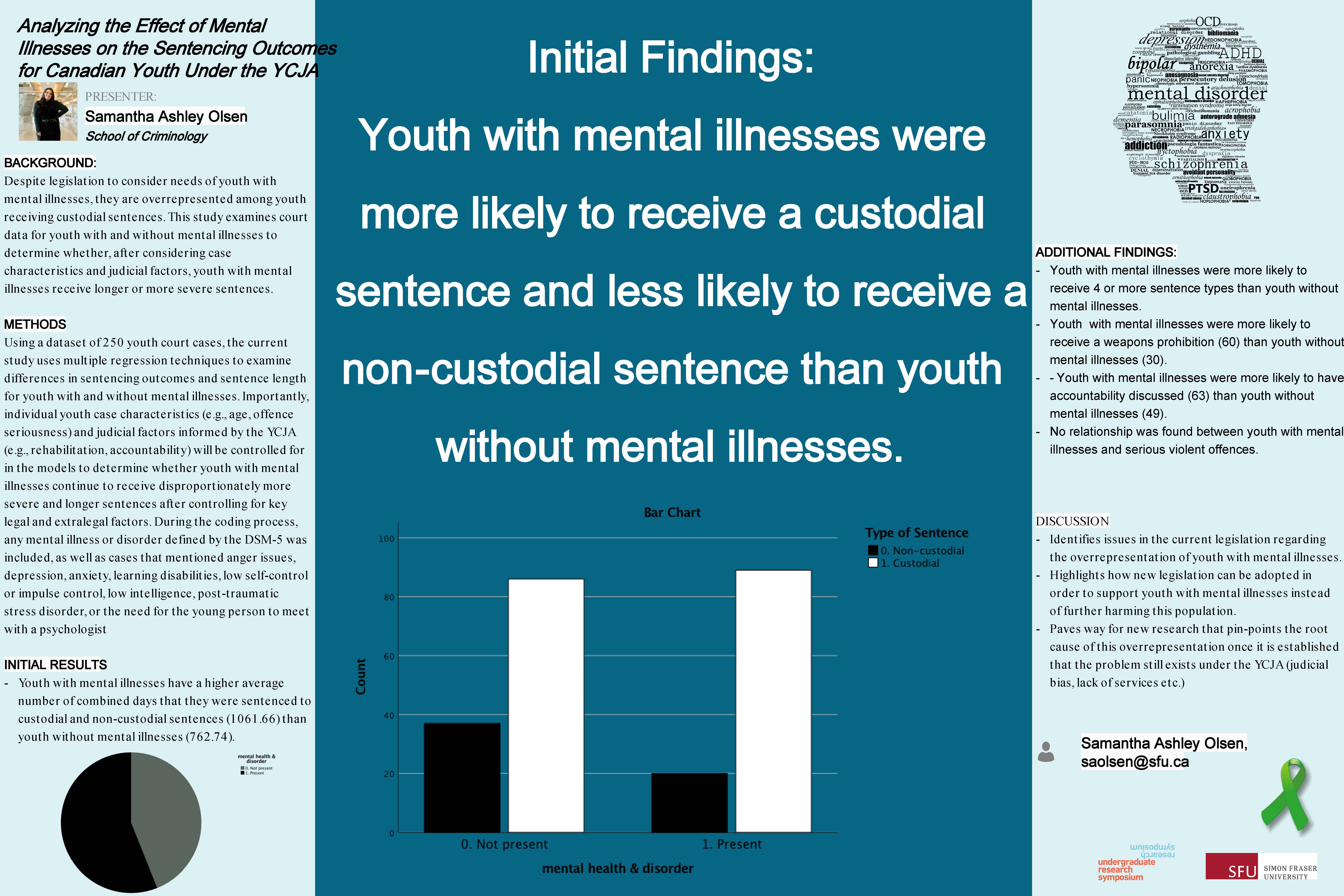Analyzing the Effect of Mental Illnesses on the Sentencing Outcomes for Canadian Youth Under the YCJA
Main Article Content
Abstract
The Youth Criminal Justice Act (YCJA), the Canadian legislation that governs the youth justice system, has numerous provisions that consider the unique needs of youth from all different backgrounds to ensure their sentencing outcomes are based on what is best for the youth. With high rates of young people in the justice system experiencing mental illnesses, among the provisions included in this legislation are specific considerations and guidance for criminal justice officials when a young person who has a mental illness is involved. However, it is unclear whether the guidelines judges are expected to follow achieve the legislation’s aim of reducing sentencing disparities for youth with mental illnesses. Using a dataset of 250 youth court cases, the current study uses multiple regression techniques to examine differences in sentencing outcomes and sentence length for youth with and without mental illnesses. Importantly, individual youth case characteristics (e.g., age, offence seriousness) and judicial factors informed by the YCJA (e.g., rehabilitation, accountability) will be controlled for in the models to determine whether youth with mental illnesses continue to receive disproportionately more severe and longer sentences after controlling for key legal and extralegal factors. If analyses show that youth with mental illnesses continue to receive disproportionately longer and more severe sentences, the findings may suggest that the YCJA, as written, may not effectively reduce overrepresentation of youth with mental illnesses in custodial sentences.
Faculty Supervisor: Dr. Stephanie Wiley, School of Criminology, Simon Fraser University
Article Details

This work is licensed under a Creative Commons Attribution-NonCommercial-NoDerivatives 4.0 International License.

